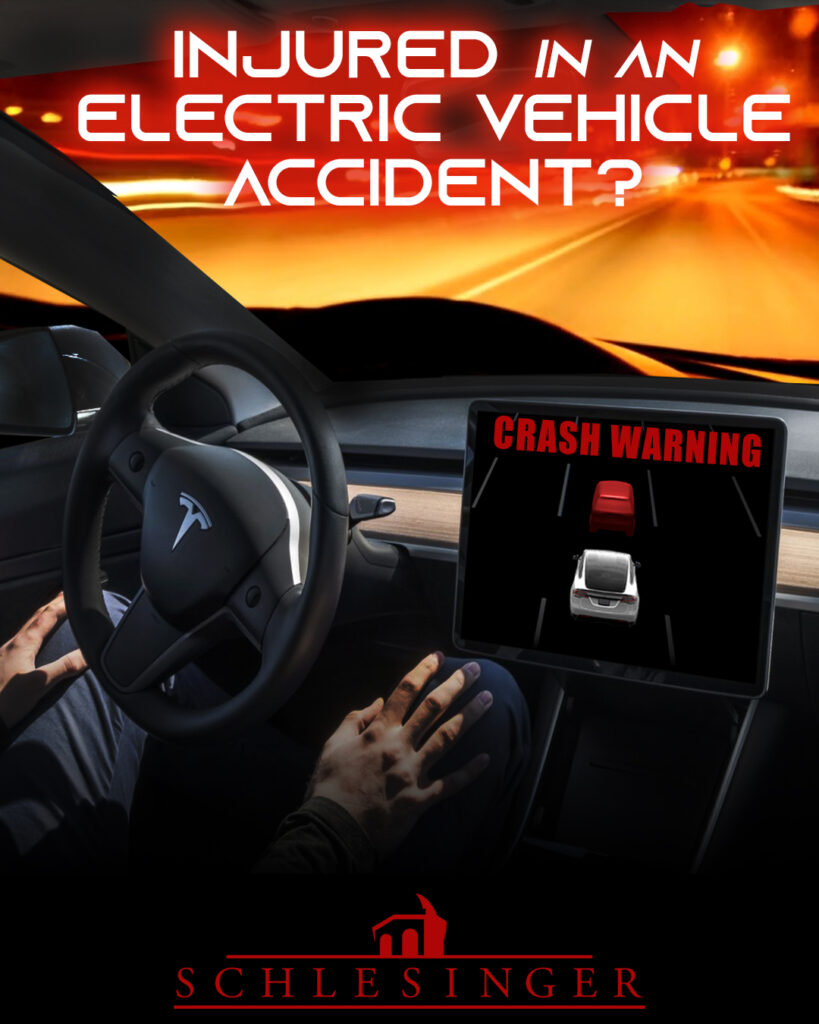Electric vehicles (EVs), recognized for their innovation and potential to reduce emissions, come with unique safety concerns that pose significant risks to all road users. This article explores safety issues related to EV crashes, highlighting the inherent problems with speed, weight, system failures, fire risks, and autonomous driving technologies.
High Performance and Speed
Due to powerful electric motors, EVs are known for their impressive acceleration and speed. This high performance, while exciting, can be a double-edged sword. For example, the Tesla Model S Plaid can accelerate from 0 to 60 mph in about 2 seconds. In contrast, a 2023 Toyota Corolla Hybrid takes over 10 seconds. Most electric car manufacturers engineer their EVs with 0-60 mpg times under 5 seconds. This level of performance is comparable to that of many racecars and is potentially overwhelming for the average driver. Accidents such as the one in Columbus, Ohio, where a Tesla Model 3 crashed through a convention center wall, highlight the dangers when powerful EVs are mishandled.
The National Highway Traffic Safety Administration estimates that there are about 16,000 crashes a year caused by pedal application errors. Many accidents that are labeled “sudden unintended acceleration” can be attributed to simply stepping on the throttle rather than the brake. Add to this issue a car that can accelerate like a racecar, and it’s a recipe for disaster. In 2023, a woman and her daughter were driving around 50 mph in their EV when it suddenly accelerated strongly, swerved off the road, and hit a tree; tragically, they died. Investigators still have no idea what happened. It seems likely that this may have been a pedal application error exacerbated by the extreme acceleration of the EV.
Increased Vehicle Weight
EVs are substantially heavier than their internal combustion counterparts, primarily due to their heavy batteries. This increased weight raises significant safety concerns during accidents. Heavier vehicles can cause more severe damage in collisions and are challenging to manage on the road. For instance, a study by the University of Nebraska demonstrated how a heavy EV could easily breach standard crash barriers that would have stopped a standard non-electric vehicle. This poses a risk to EV passengers and others on the road, potentially leading to more severe injuries caused by such accidents.
According to a recent study, adding 1,000 pounds of weight to a car increases the chance of an auto accident ending in a fatality by nearly 50%. To illustrate weight differences between vehicles, a Mazda Miata weighs about 2,341 pounds, while the Hummer EV has a 9,046-pound curb weight. That is a difference of more than three tons or 6,000 pounds.
System Failures and Unintended Acceleration
System failures, including unintended acceleration, present serious risks. Cases where electric vehicles have reportedly accelerated on their own emphasize the potential dangers of electronic system malfunctions in EVs. These incidents can lead to severe accidents, questioning the reliability of the vehicle’s electronic control systems.
In 2021, an off-duty taxi driver claimed his electric vehicle accelerated uncontrollably and the brakes failed. This system failure led to a crash that killed one person and injured 20 pedestrians.
Fire Risks from Lithium-ion Batteries
EVs are also prone to fires that are difficult to extinguish due to their lithium-ion batteries. These batteries can catch fire in crashes or even spontaneously due to internal faults, leading to intense and long-lasting fires that are hazardous to emergency responders and drivers. Recent incidents have highlighted the challenges fire departments face when dealing with EV fires, which require vast amounts of water and pose risks of re-ignition days after the initial fire.
According to reports from police and witnesses, in 2019, a man lost control of his speeding electric vehicle. It veered off the road, collided with multiple trees, and caught fire. Despite the danger, several bystanders courageously tried to rescue the driver. Unfortunately, they were unable to open the car doors because the retractable door handles failed to deploy and the man died. This accident involved speeding, a battery fire, and a door handle system failure.
Autonomous Driving Challenges
While autonomous driving proponents promise increased safety, the reality can be different. Systems like Tesla’s Autopilot are often used in conditions they are not designed for, leading to severe accidents. Misleading marketing, actual safety issues and the lack of comprehensive studies on the efficacy of these technologies in various driving conditions contribute to the uncertainty and risk associated with autonomous EVs.
For instance, in 2023, a tragic incident occurred when a North Carolina student, stepping off a school bus, was hit by an EV traveling at highway speeds on autopilot.
The National Highway Traffic Safety Administration (NHTSA) has investigated 956 EV crashes using self-driving technology from January 2018 to August 2023. Tragically, 29 fatalities resulted from these accidents. Furthermore, 211 of these crashes involved the EV colliding nearly head-on with another vehicle or obstacle, resulting in 14 deaths and numerous injuries. This highlights the problems we can encounter when new technology is misused or fails to perform as promised.
Legal Protection and Firm Commitment
The EV accident lawyers at Schlesinger Law Offices understand the complexities of EV-related accidents. With decades of experience in automotive litigation, dating back to the 1970s, we are well-equipped to handle auto accident cases involving advanced technologies and their failures. We support technological advancements but hold companies responsible if consumer safety is compromised. Our firm stands ready to assist victims of EV accidents by leveraging our deep legal experience to ensure that these manufacturers are held accountable and that our clients receive the compensation they deserve. Whether you have experienced an accident due to a system failure, unexpected vehicle behavior, or any other issue linked to electric vehicle technology, our experienced EV accident lawyers are here to support you and your family as we fight for justice. Contact us now for a free consultation.


